Showing the application side of maths is one way to reduce the syndrome.
Two young girls in Chennai want to inspire the next generation of innovators by teaching them how to write and understand technology code. Aditi Prasad and Deepti Rao are sisters who have spent a lot of their studying life in the US exploring subjects in an around STEM (science, technology, engineering and mathematics). "I always knew I wanted to see the application side of technology.
In that I worked with an MIT start-up company in Boston, one that was working on brain-machine interfaces and artificial intelligence," Prasad shares. "We want the code movement to go across the country," says her sister Deepti Rao.
These young girls are passionate about technology because they have had the opportunity to learn and be exposed to its use and potential. Together with their father, they set up Robotix Education. Having grown up with progressive parents who encourage them to explore technology and nature around them, the duo wants to pass on the benefits of this privilege to many others. The girls have taken after their dad in their interest for robotics.
India's numbers on women in tech need some serious course correction. According to a recent study by Kelly Global Force, women represent 46% of all enrolled undergraduate students in STEM, not many continue to pursue careers. 41% of women in technology companies leave after 10 years of experience, compared to 17% of men.
If one looks at the big companies, a survey by Nasscom points out that women comprise 25% of the two-lakh strong employee strength of Indian IT majors such as Tata Consultancy Services (TCS), Wipro and Satyam. Nasscom pits the current male versus female ratio at 76:24 and predicts that it will change to 65:33 by next year.
One of the ways to challenge and fix these lopsided ratios is to make people approach technology with its end use, make it more approachable and fun and even put the spotlight on those who are changing the game with tech.
Ashwini Asokan, founder of Mad Street Den, uses artificial intelligence for everyday products and services as part of consumers' shopping experience. They have for long had to spend time explaining what they do. But Asokan has been determined and believes that's the only way.
"I think I actively say different kind of stories about AI to show that it is very useful to people to make their lives better," Asokan says, but admits there is a steep education curve when it comes acclimatising people to AI. We have had some good role models in women like Padmasree Warrior, formerly at Cisco, Neelam Dhawan at HP India, Vanitha Narayanan of IBM, Aruna Jayanthi of Capgemini and many others.
What's needed now is to expand this list several times over and showcase stories of young women in tech who are breaking the mould and creating new thinking and discourse in tech. From innovators to coders, the more stories we celebrate the faster it will lift the fear of STEM. As Prasad shared, we need to get beyond the 'I am scared of math' syndrome. And that's might be the crux of our problem.
![submenu-img]() Centre's strict warning to its employees on tardiness, suggests live location detection system for...
Centre's strict warning to its employees on tardiness, suggests live location detection system for...![submenu-img]() T20 World Cup: Pakistan survive Ireland scare, win by 3 wickets in their last league match
T20 World Cup: Pakistan survive Ireland scare, win by 3 wickets in their last league match![submenu-img]() 'Why don't you...': Rupali Ganguly slams troll who accused her of paid PR against Anupamaa actor Gaurav Khanna's wife
'Why don't you...': Rupali Ganguly slams troll who accused her of paid PR against Anupamaa actor Gaurav Khanna's wife![submenu-img]() NEET-UG 2024 exam row: Bihar Police recovers 6 post-dated cheques 'issued for question paper facilitators'
NEET-UG 2024 exam row: Bihar Police recovers 6 post-dated cheques 'issued for question paper facilitators'![submenu-img]() Renukaswamy murder case: Darshan, Pavithra Gowda's to remain in police custody till...
Renukaswamy murder case: Darshan, Pavithra Gowda's to remain in police custody till...![submenu-img]() Meet man, who once worked as stone breaker, sold tendu leaves, then cracked PSC exam to become...
Meet man, who once worked as stone breaker, sold tendu leaves, then cracked PSC exam to become...![submenu-img]() Meet IAS officer, IIT graduate who left high-paying job at Samsung, then cracked UPSC exam, got AIR..
Meet IAS officer, IIT graduate who left high-paying job at Samsung, then cracked UPSC exam, got AIR..![submenu-img]() Meet MIT graduate who secured 42nd rank in UPSC, is now suspended due to..
Meet MIT graduate who secured 42nd rank in UPSC, is now suspended due to..![submenu-img]() Railway Recruitment 2024: Sarkari Naukri alert for 1104 posts, check eligibility and selection process
Railway Recruitment 2024: Sarkari Naukri alert for 1104 posts, check eligibility and selection process![submenu-img]() NEET-UG exam row: 'Transparent process will be...,' assures Education Minister Dharmendra Pradhan to students, parents
NEET-UG exam row: 'Transparent process will be...,' assures Education Minister Dharmendra Pradhan to students, parents![submenu-img]() DNA Verified: Did Kangana Ranaut party with gangster Abu Salem? Actress reveals who's with her in viral photo
DNA Verified: Did Kangana Ranaut party with gangster Abu Salem? Actress reveals who's with her in viral photo![submenu-img]() DNA Verified: New Delhi Railway Station to be closed for 4 years? Know the truth here
DNA Verified: New Delhi Railway Station to be closed for 4 years? Know the truth here![submenu-img]() DNA Verified: Did RSS chief Mohan Bhagwat praise Congress during Lok Sabha Elections 2024? Know the truth here
DNA Verified: Did RSS chief Mohan Bhagwat praise Congress during Lok Sabha Elections 2024? Know the truth here![submenu-img]() DNA Verified: Is CAA an anti-Muslim law? Centre terms news report as 'misleading'
DNA Verified: Is CAA an anti-Muslim law? Centre terms news report as 'misleading'![submenu-img]() DNA Verified: Lok Sabha Elections 2024 to be held on April 19? Know truth behind viral message
DNA Verified: Lok Sabha Elections 2024 to be held on April 19? Know truth behind viral message![submenu-img]() From Jawan to Munjya, 5 films that showcased exceptional VFX and ruled box office recently
From Jawan to Munjya, 5 films that showcased exceptional VFX and ruled box office recently![submenu-img]() In pics: Raghubir Yadav, Chandan Roy celebrate success of Panchayat season 3 with TVF founder Arunabh Kumar, cast, crew
In pics: Raghubir Yadav, Chandan Roy celebrate success of Panchayat season 3 with TVF founder Arunabh Kumar, cast, crew![submenu-img]() How Kalki 2898 AD makers dared to dream pan-India with its unique promotional campaign for Prabhas-starrer
How Kalki 2898 AD makers dared to dream pan-India with its unique promotional campaign for Prabhas-starrer![submenu-img]() In pics: Prabhas' robotic car Bujji from Kalki 2898 AD takes over Mumbai streets, fans call it 'India's Batmobile'
In pics: Prabhas' robotic car Bujji from Kalki 2898 AD takes over Mumbai streets, fans call it 'India's Batmobile'![submenu-img]() Streaming This Week: Bade Miyan Chote Miyan, Maidaan, Gullak season 4, latest OTT releases to binge-watch
Streaming This Week: Bade Miyan Chote Miyan, Maidaan, Gullak season 4, latest OTT releases to binge-watch![submenu-img]() DNA Explainer: What is Kafala system that is prevalent in gulf countries? Why is it considered extremely brutal?
DNA Explainer: What is Kafala system that is prevalent in gulf countries? Why is it considered extremely brutal? ![submenu-img]() Lok Sabha Elections 2024: What are exit polls? When and how are they conducted?
Lok Sabha Elections 2024: What are exit polls? When and how are they conducted?![submenu-img]() DNA Explainer: Why was Iranian president Ebrahim Raisi seen as possible successor to Ayatollah Khamenei?
DNA Explainer: Why was Iranian president Ebrahim Raisi seen as possible successor to Ayatollah Khamenei?![submenu-img]() DNA Explainer: Why did deceased Iranian President Ebrahim Raisi wear black turban?
DNA Explainer: Why did deceased Iranian President Ebrahim Raisi wear black turban?![submenu-img]() Iran President Ebrahim Raisi's death: Will it impact gold, oil prices and stock markets?
Iran President Ebrahim Raisi's death: Will it impact gold, oil prices and stock markets?![submenu-img]() 'Why don't you...': Rupali Ganguly slams troll who accused her of paid PR against Anupamaa actor Gaurav Khanna's wife
'Why don't you...': Rupali Ganguly slams troll who accused her of paid PR against Anupamaa actor Gaurav Khanna's wife![submenu-img]() Renukaswamy murder case: Darshan, Pavithra Gowda's to remain in police custody till...
Renukaswamy murder case: Darshan, Pavithra Gowda's to remain in police custody till...![submenu-img]() Ahead of Sonakshi Sinha-Zaheer Iqbal's wedding, his sister welcomes actress in family, shares their photo with heart
Ahead of Sonakshi Sinha-Zaheer Iqbal's wedding, his sister welcomes actress in family, shares their photo with heart![submenu-img]() 'I don't take any bull****': Anurag Kashyap reacts to surge of entourage cost; blames producers, actors' agencies for...
'I don't take any bull****': Anurag Kashyap reacts to surge of entourage cost; blames producers, actors' agencies for...![submenu-img]() Watch: Aamir Khan breaks down, sings Babul Ki Duwayein Leti Ja in unseen video from Ira Khan-Nupur Shikhare's wedding
Watch: Aamir Khan breaks down, sings Babul Ki Duwayein Leti Ja in unseen video from Ira Khan-Nupur Shikhare's wedding![submenu-img]() Tiny but mighty: Buffalo calf fearlessly charges elephant to defend mom, viral video
Tiny but mighty: Buffalo calf fearlessly charges elephant to defend mom, viral video![submenu-img]() Viral video: Lavish celebration goes wrong as firecrackers injure baby and mother
Viral video: Lavish celebration goes wrong as firecrackers injure baby and mother![submenu-img]() Video of girl walking with tiger wearing hot dress goes viral, watch
Video of girl walking with tiger wearing hot dress goes viral, watch![submenu-img]() Meet Saurabh Netravalkar's wife, Devi Snigdha Muppala: An accomplished high achiever in her own right
Meet Saurabh Netravalkar's wife, Devi Snigdha Muppala: An accomplished high achiever in her own right![submenu-img]() Stolen Titian Renaissance painting found at London bus stop, set to sell for up to..
Stolen Titian Renaissance painting found at London bus stop, set to sell for up to..
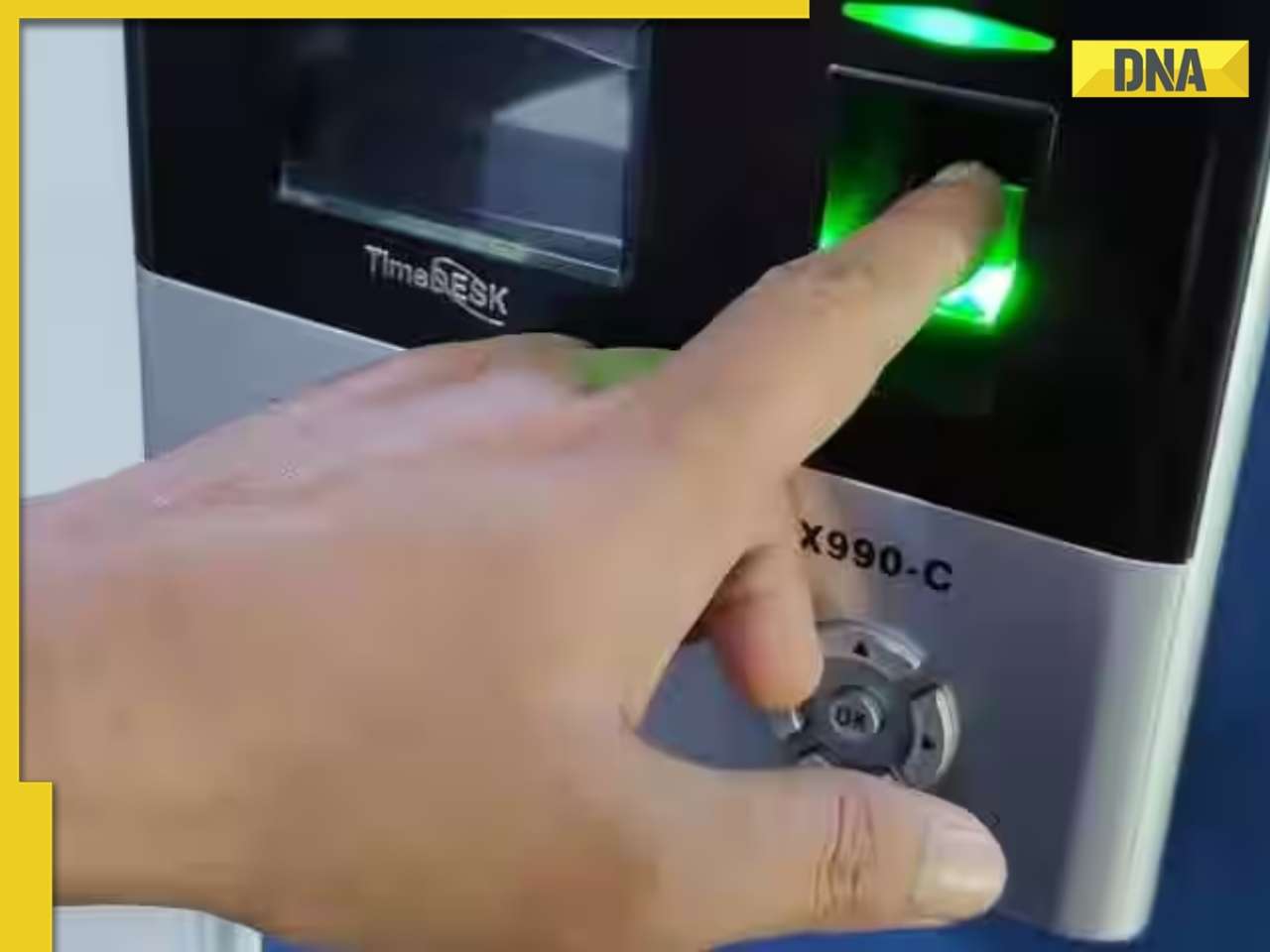













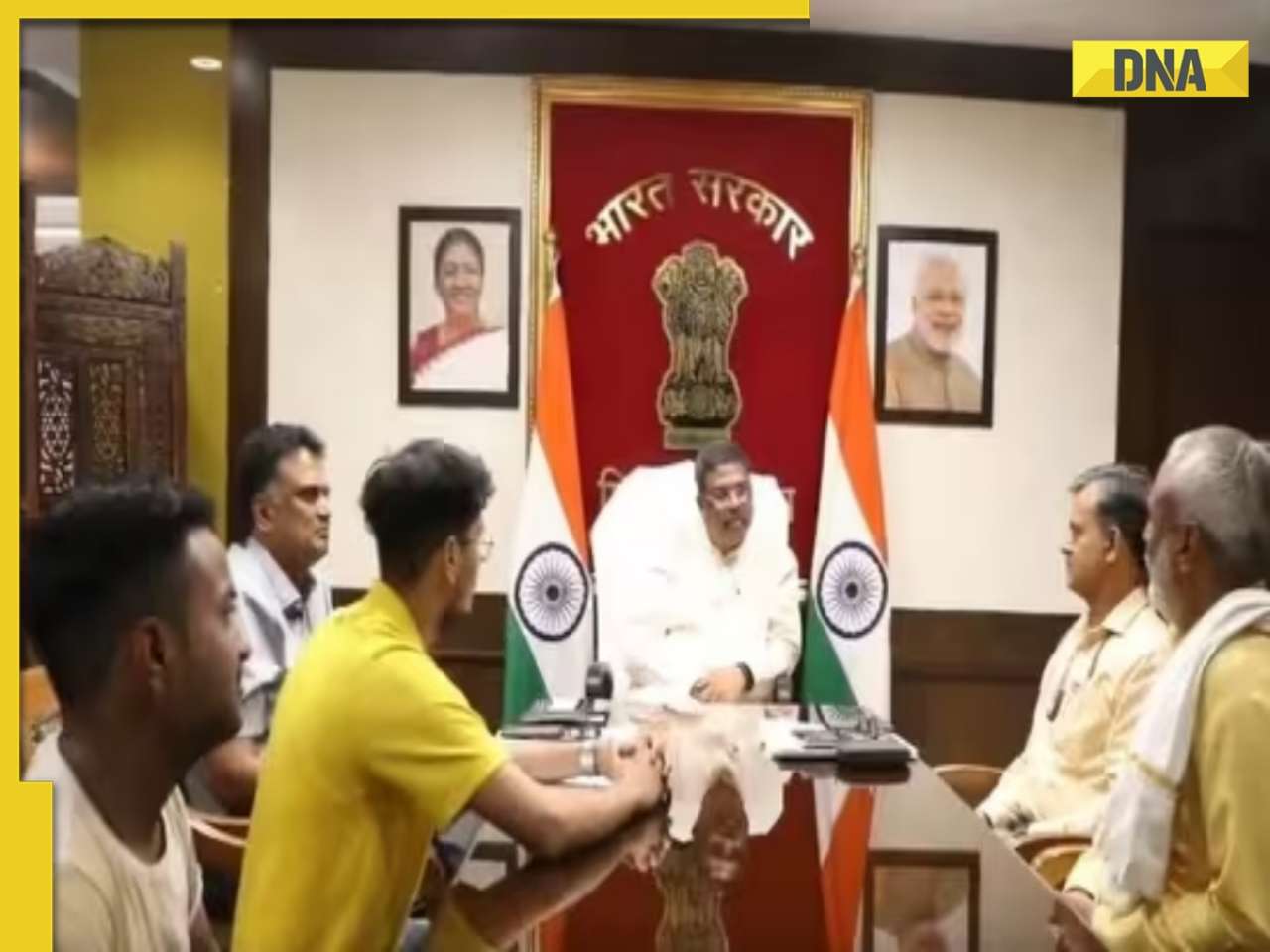






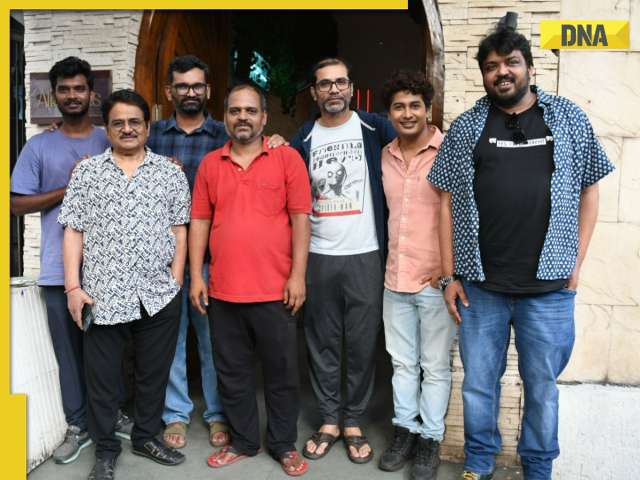

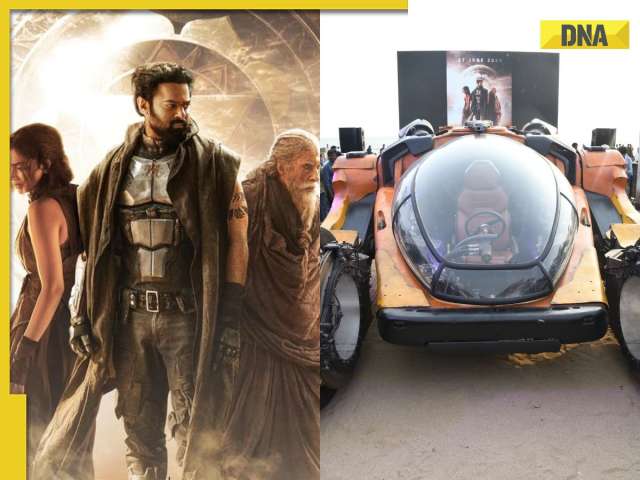







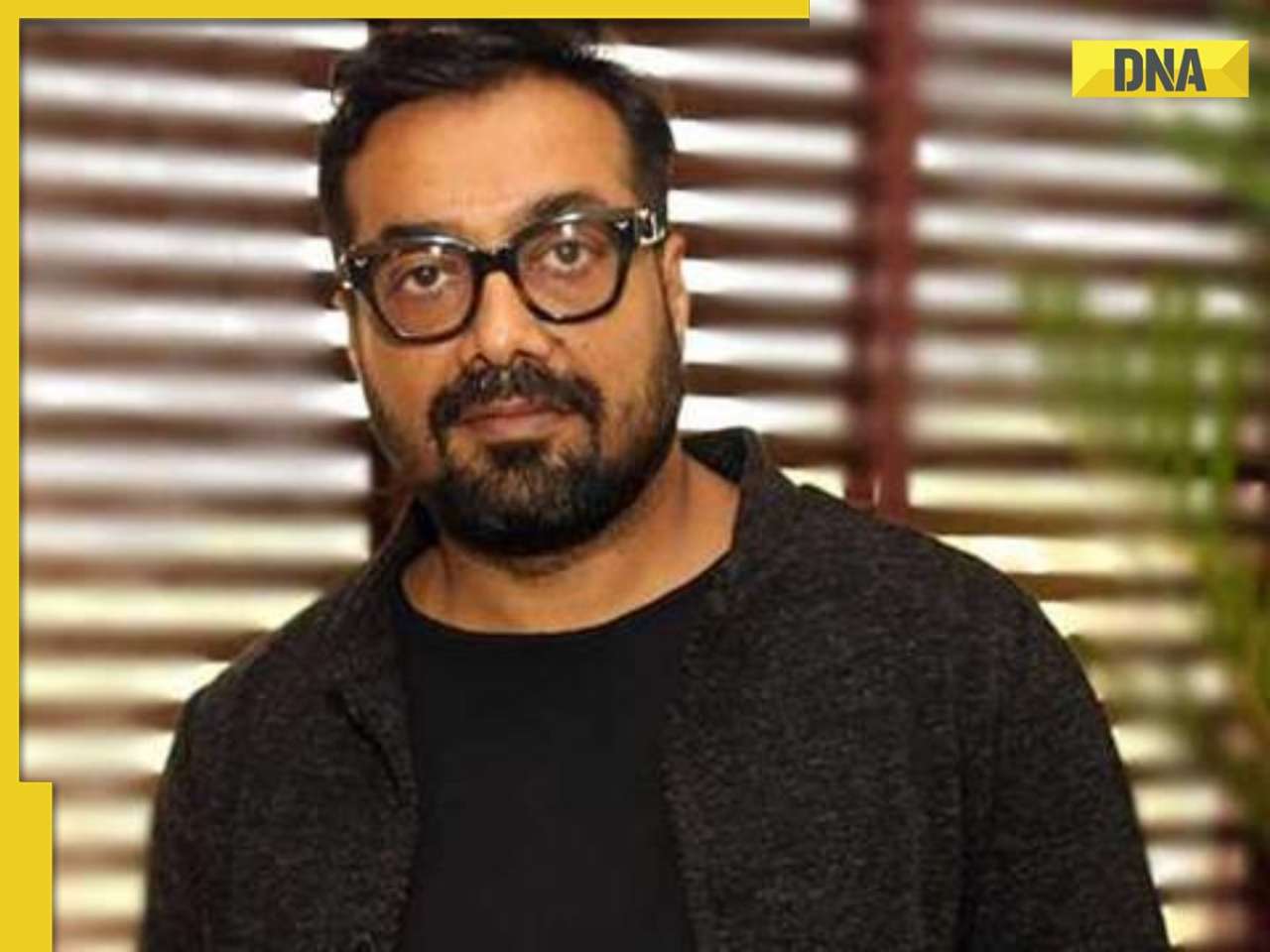




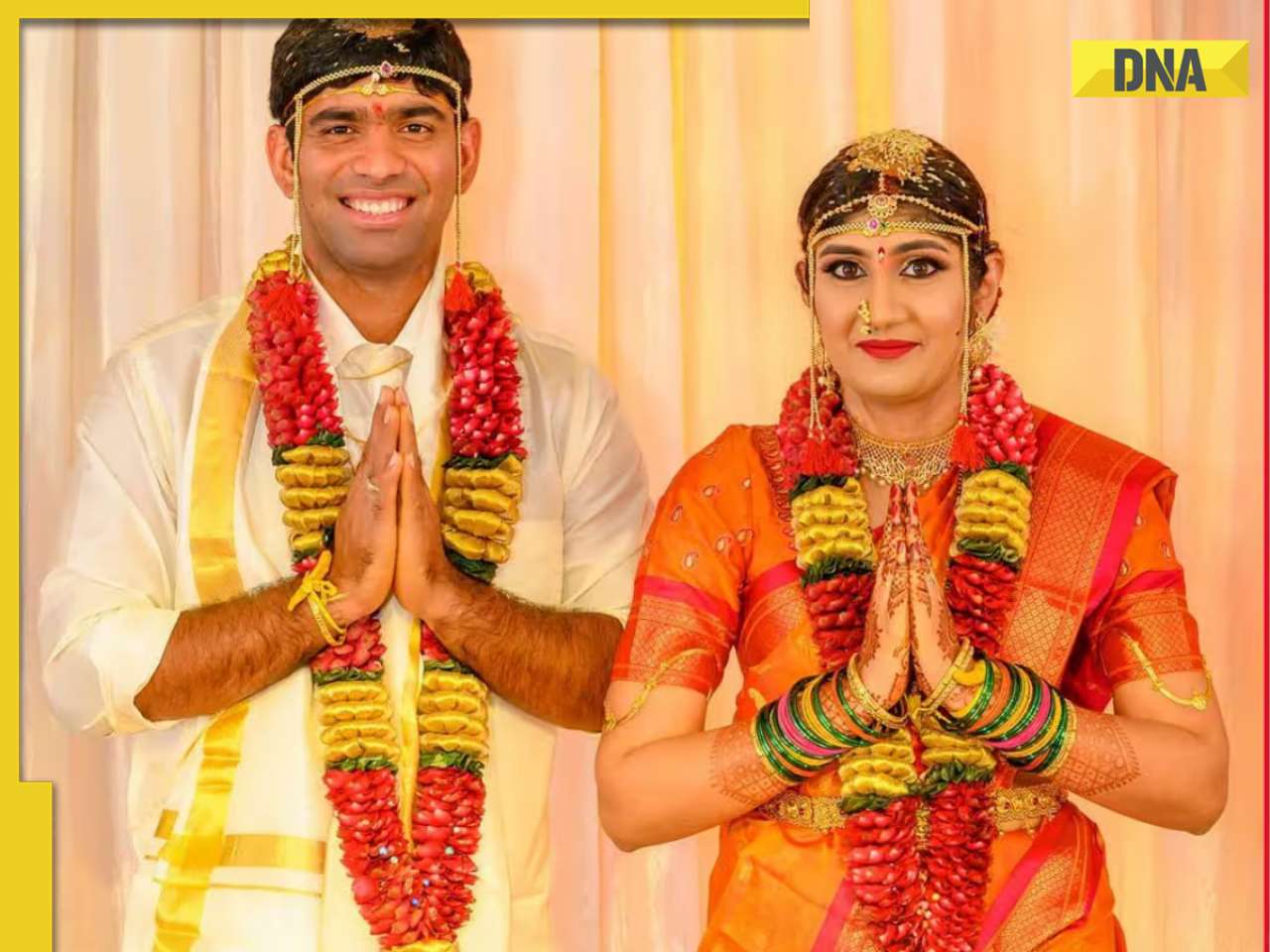


)

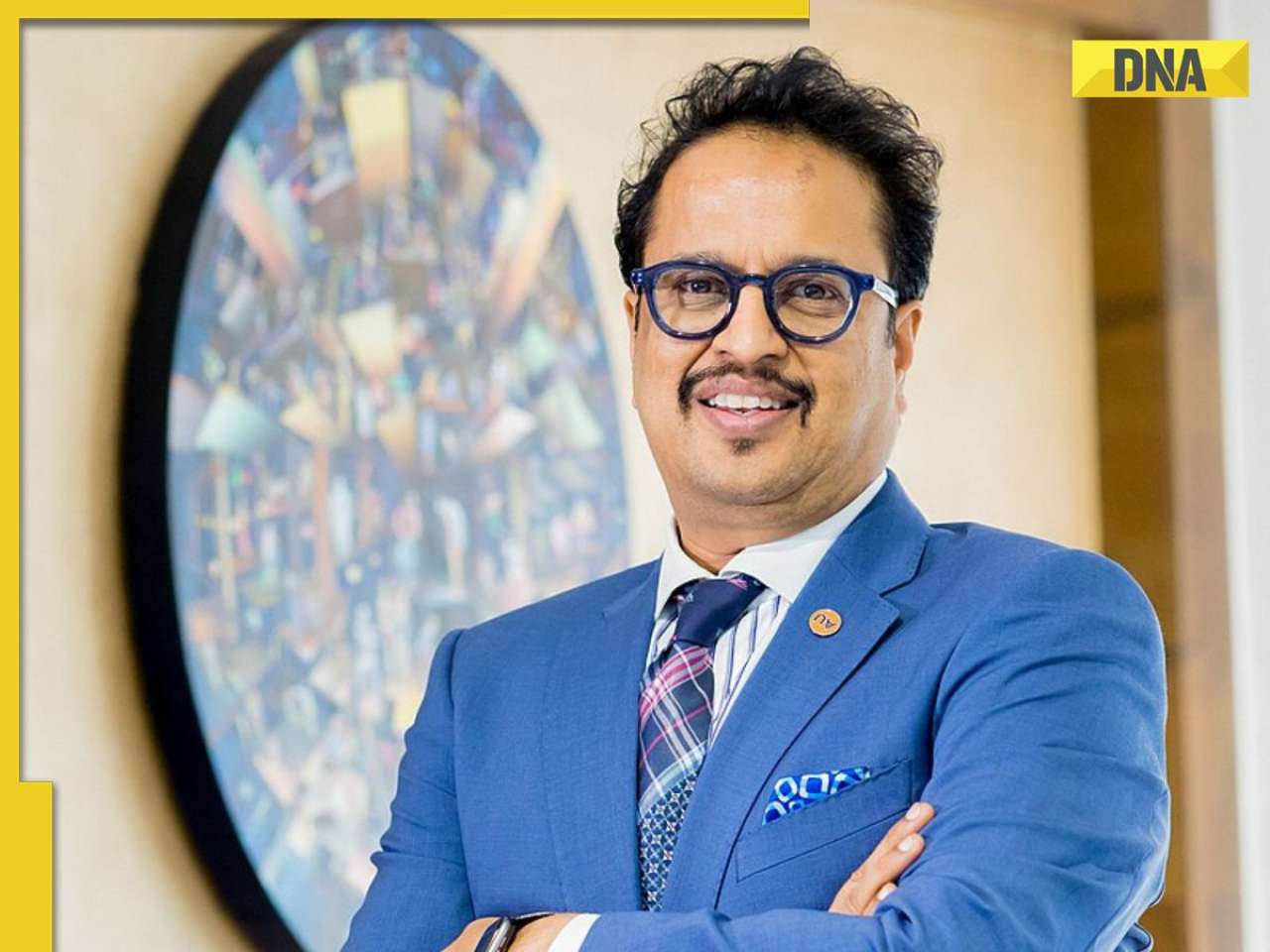



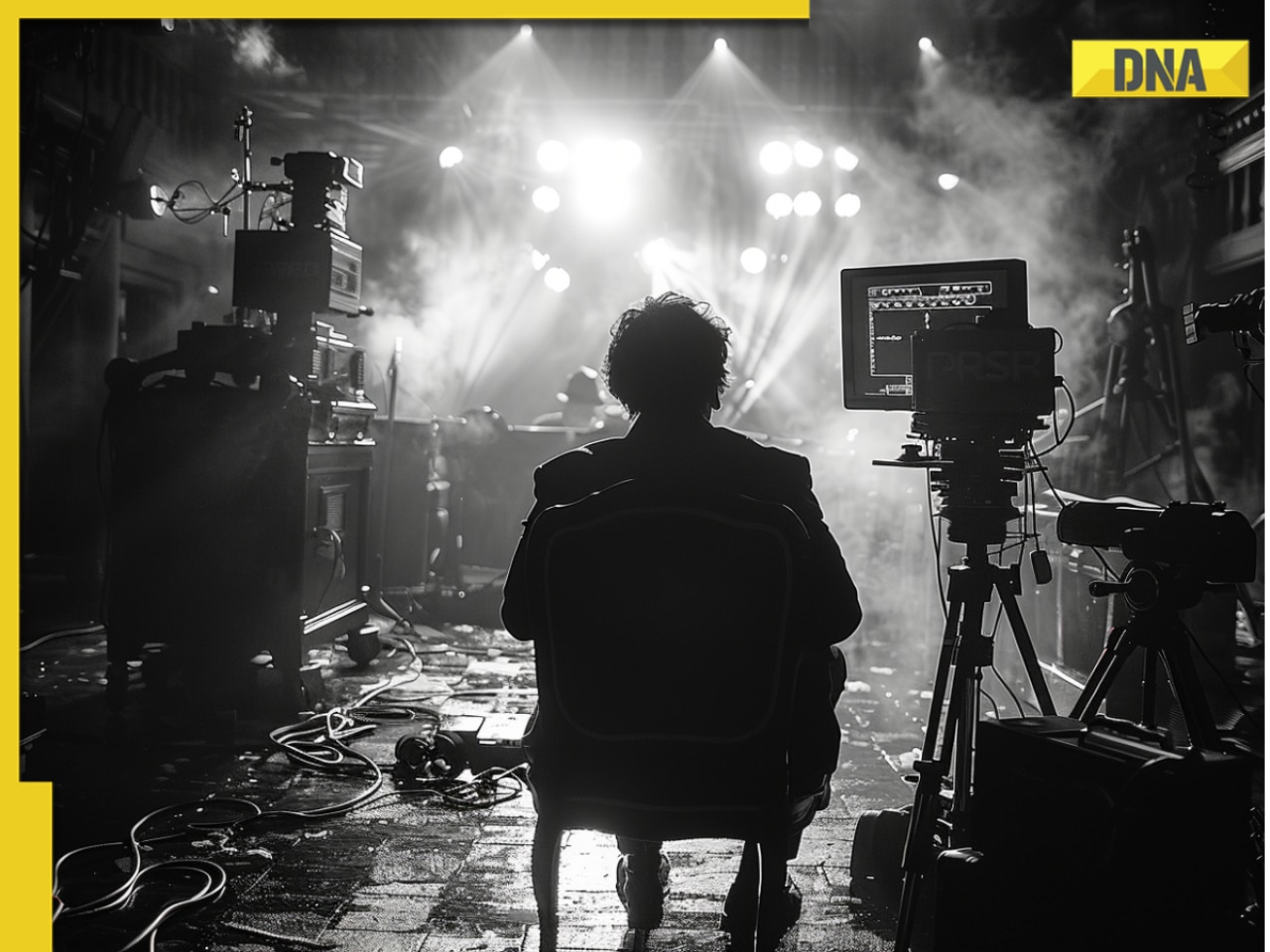


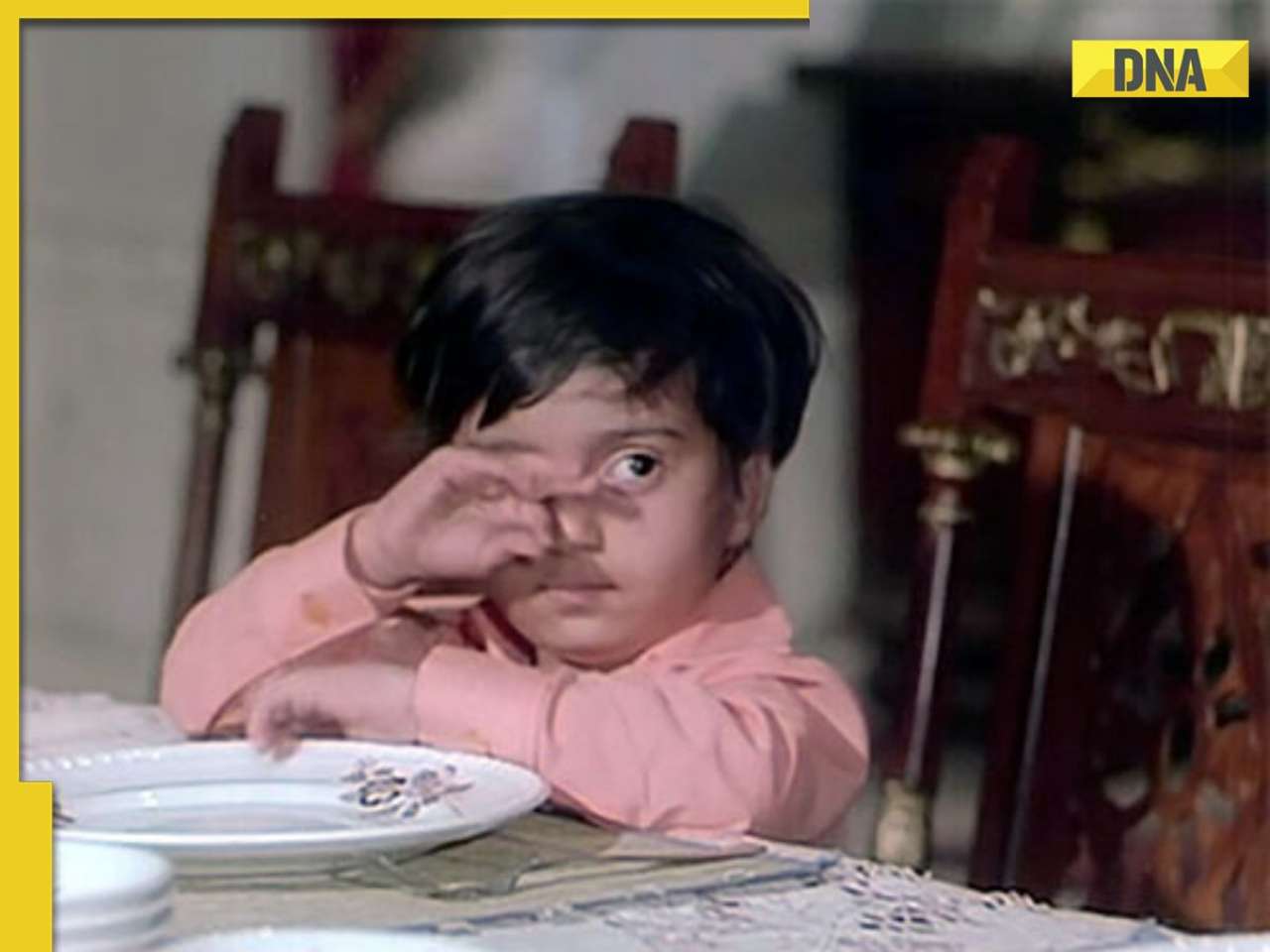
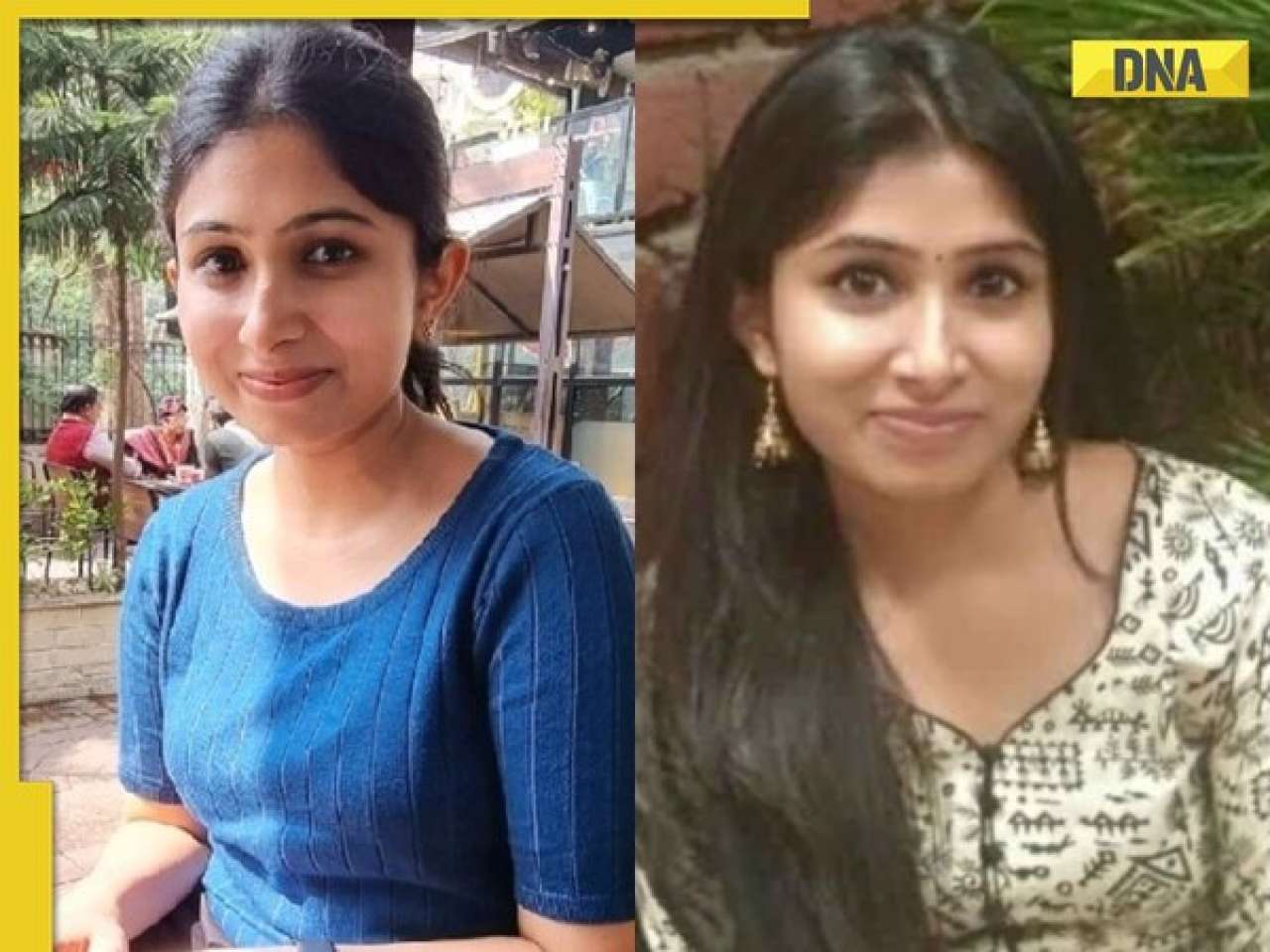







)
)
)
)
)
)